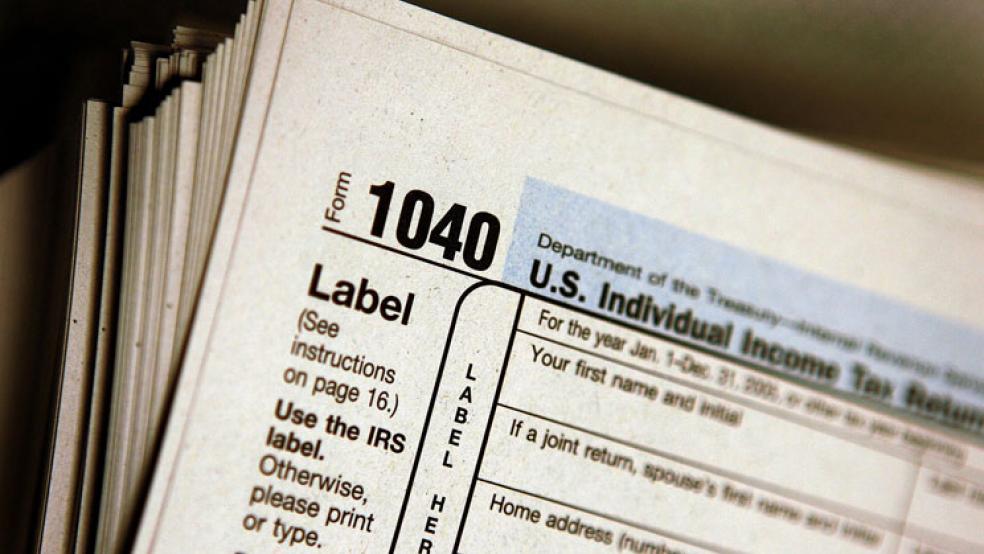Thanks to tax preparation software, more of us are making fewer mistakes on our annual tax returns. But still, just one slip in entering information on your computer could end up costing you, either in the form of a larger tax bill or a smaller refund.
if a mistake -- either on your computer or paper forms -- doesn't cost you cash, it could delay the receipt of any refund you're expecting.
Now that you're facing the final Oct. 15 deadline for your tax-filing extension, make sure you don't make any of these filing mistakes.
1. Pay your Roth conversion taxes
A lot of taxpayers have taken advantage of the tax law change that now allows anyone, regardless of income, to convert a traditional individual retirement account to a Roth IRA. But if you made such a change in 2010 when this conversion was first allowed, you have a tax task to take care of on your 2012 return. A special provision allowed individuals who moved their money into a Roth IRA in 2010 to spread the taxes due on converted amounts equally over the 2011 and 2012 tax years. The first half of those conversion taxes was due with your 2011 tax return. Make sure you pay the rest of the taxes with your 2012 return.
2. Homebuyer tax credit complications
Since its creation, the first-time homebuyer credit went through significant changes. It started as a $7,500 interest-free loan from Uncle Sam, changed into a true tax credit of up to $8,000 for a first-time buyer and added a $6,500 tax credit for a previous homeowner moving up to another house.
RELATED: YOU WON'T BELIEVE WHICH STATE TAXES ITS POOR THE MOST
All the revisions to eligible buyer guidelines, purchase time frames, income thresholds, home price restrictions and payback requirements are a tax-filing minefield. If you're not careful, a mistake here could end up costing you the credit or at least slowing down the processing of your return.
If you're paying back the original $7,500 tax credit, the IRS has made the repayment process a bit simpler by eliminating in many cases the requirement that taxpayers file Form 5405. Now some individuals who are repaying the credit can just write the repayment amount they are including with their taxes directly on Form 1040.
3. Math miscalculations
The most common error on tax returns, year after year, is bad math. Mistakes in arithmetic or in transferring figures from one schedule to another will get you an immediate correction notice. Math mistakes also can reduce your tax refund or result in you owing more tax than you thought.
Using a tax software program to file your return can help reduce math errors. The built-in calculators do the work for you, adding, subtracting and inserting numbers on additional forms as needed. But you still have to make sure your initial numbers are correct. Entering $3,500 when the real figure is $5,300 makes a lot of tax difference. Getting the numbers right is crucial because you can be sure the IRS will be double-checking numerical entries against its copies of your tax statements (W-2, 1099s and the like). When IRS examiners find a discrepancy, they'll definitely let you know and, in many cases, will correct your mistake and refigure your taxes for you. Don't give them the chance. Make sure your math entries are right.
4. Direct deposit dangers
Taxpayers can have a refund directly deposited into multiple bank accounts. This option is a great way to save your refund money, but the more numbers you enter on a tax form, the more chances you have to enter them incorrectly. And a wrong account or routing number could cause you to lose your refund entirely.
RELATED: 11 SURPRISING THINGS YOU HAVE TO PAY TAXES ON
You can divide your refund into three accounts by filing Form 8888 along with your individual return. It's not a difficult document to complete, but if you put in wrong account numbers, your refund could end up in someone else's account or be sent back to the IRS. Either way, you might not be able to retrieve your refund because there is no IRS procedure for replacing lost electronically transferred funds.
Incorrect account numbers aren't just a problem when a refund is split multiple ways. Even if your refund is going to just one account, make very sure you enter your account and bank routing numbers correctly.
5. Additional income, additional filing work
Did you have a side job this year? If so, as a contractor you probably received a Form 1099-MISC detailing the extra earnings.
What about savings and investment accounts? For these, you should have received Form 1099-INT and Form 1099 DIV statements.
In each 1099 instance, the IRS knows precisely how much extra money, either as wages or unearned investment income, you made as soon as you did, thanks to the copies of your 1099 forms that went to the tax agency.
RELATED: 8 SMART WAYS TO LOWER YOUR TAXES IN RETIREMENT
If you forget to include any of these earnings on your return, the IRS examiners will let you know you owe taxes on it, too. And depending on when your oversight is discovered, you also could owe penalties and interest on the unreported earnings.
6. Filing status errors
Make sure you choose the correct filing status for your situation. You have five options, and each could make a difference in your ultimate tax bill.
If this is the first tax-filing season you've been divorced and you now are a single parent, head-of-household probably will be more beneficial. And you're still married, but you and your spouse are thinking about filing separate tax returns? That works in some cases, but not all.
Make sure you know what each tax-filing status entails, and choose the one that best fits your personal and tax situation.
7. Social Security number oversights
Because the IRS stopped putting taxpayer Social Security numbers on tax package labels in response to privacy concerns, some taxpayers forget to write in their identification numbers. Your tax ID number is crucial because there are so many transactions -- income statements, savings account interest, retirement plan contributions -- keyed to this number.
The nine-digit sequence also is vital to claim several tax credits, such as the child tax and additional child tax credits as well as ones for educational expenses and dependent care costs.
RELATED: WHY MORE AFFLUENT AMERICANS PAY NO TAXES
And make sure the names associated with the Social Security numbers match Social Security Administration records. A difference here also will cause the IRS to kick out or slow down your return.
8. Complete charitable contributions
Did you give to charitable groups last year? All types of donations, from cash to cars, could be valuable tax deductions, so make sure you count them all when you file. Be sure to follow the donation tax rules, the most important being that you give to a qualified organization -- that is, one that has tax-exempt status with the IRS. Also be careful when calculating any gifts of clothing and household items. Tax law now requires that these donations be in good or better condition or the deduction is disallowed.
9. Signature required
Sign and date your return. The IRS won't process it if it's missing a John Hancock, and that means on e-filed returns, too. Taxpayers filing electronically must sign the return electronically using a personal identification number, or PIN. To verify your identity, you'll have to provide the PIN you used last year or your adjusted gross income from your previous year's tax return.
Your tax software should walk you through the e-signature process, but if you're still mailing your return, don't be in such a hurry that you stuff your 1040 in the preaddressed IRS envelope without signing it. And if it's a joint filing, you and your spouse must sign.
10. Missing the deadline
This is your last chance. If you miss the Oct. 15 filing extension due date, you could face late- or non-filing penalties. You should have paid most of any tax you owe when you got your extension earlier in the year. Any amount still due with your Oct. 15 filing will be used to calculate your possible penalty amount.





